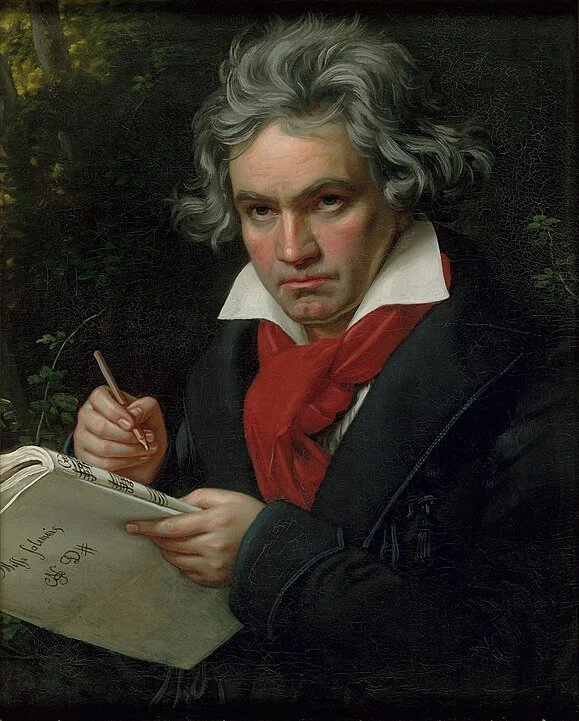Turning Beethoven Around…
I recently listened to an audiobook (Strength to Strength by Arthur C. Brooks) recommended to me by one of my younger partners. The book highlights the natural decline all of us will experience in our abilities at work as we age.
We naturally loses skills as we get older. We slow down physically and mentally. The book argues it happens far earlier than many of us would like to admit.
Fortunately the book also highlights strengths gained from years of experience, a “crystallized knowledge” that can be employed in late career if we choose to do so.
By Joseph Karl Stieler - Public Domain, https://commons.wikimedia.org/w/index.php?curid=133271390
The book argues that to make the shift from our early-career strengths to our late career path we must make some changes to embrace slowing down, focusing on relationships and a shift in purpose.
Late in the book the author highlights the story of musician and composer Ludwig von Beethoven (yes, that Beethoven) as the young prodigy began to lose his hearing early in life.
Beethoven was a great pianist. As his hearing dissipated, though, his ability to perform suffered because he could not hear the notes. And the audiences suffered as well. To hear the notes Beethoven would almost literally bang the notes on the keyboard.
Beethoven’s late career is highlighted by the absence of his own performance but an increase in originality and expression as he learned to accommodate his hearing loss and to compose in spite of it.
Beethoven’s Ninth Symphony or “Ode to Joy” is the result.
Here is where the heartbreak and the beauty begins.
Beethoven premiered the ninth symphony, his last, in Vienna on May 7, 1824, three years before his death. Beethoven was completely deaf but insisted on conducting the piece. A second conductor, who the orchestra actually followed, stood behind Beethoven.
At the end of the piece Beethoven was a few measures behind the symphony and continued to conduct and was oblivious to the cheering crowd behind him. One of the singers walked over to Beethoven and turned him around so he could see and accept the rousing applause.
It breaks my heart that Beethoven could not hear perhaps his greatest piece of work, could not hear the grateful and cheering crowd behind him. He almost missed it entirely but for the kindness of one of the ensemble who turned him around to accept the accolades.
There is a lesson here.
If we continue our work despite our changing abliities, adapt and acceptance our losses, and allow our weaknesses to become strengths we may continue to create masterpieces.
My hope for you (and me) is that someone will be there to turn us around so we can appreciate that your (and my) work has resonated with others.
-TB

